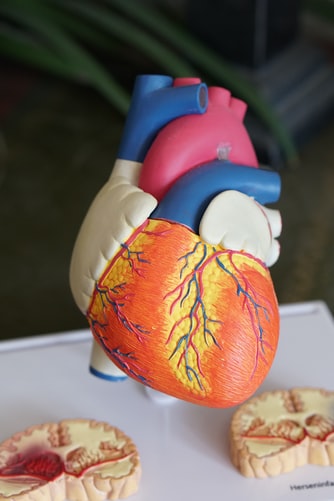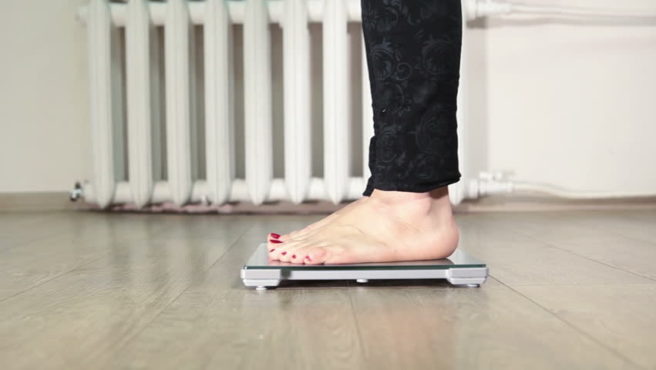
6 simple things you can do to improve your heart health
A healthy heart is a long-term investment.
According to Irishheart.ie, the nation’s heart and stroke charity, 'cardiovascular disease kills nearly 9,000 in people in Ireland every year, despite an estimated 80% of premature CVD being preventable.'
‘Cardiovascular disease includes all diseases of the heart and circulation but most commonly it refers to coronary heart disease (angina, heart attack), stroke and other blood vessel diseases.'
This number is unnecessarily high. With the support and research carried out by organisations like Irish Heart, there is no reason not to be educated and take active steps to ensure your heart’s health, for your future. We have compiled some of our top tips for ways to look after your heart every day. These small lifestyle changes can make a huge difference.
Exercise
Having a high BMI can increase your chances of experiencing diabetes, high blood pressure, and high cholesterol, all risk factors in heart disease. Excess weight around the stomach is especially dangerous. Not being active on a regular basis increases your risk of stroke by 50%, according to Irish Heart.

Heart Ireland have created the Slí na Sláinte programme, which encourages people to walk more and get more health benefits from their walking. The programme brings together groups of people interested in getting more exercise for the sake of their health and maps out walking routes, creates community and sets challenges for members, making getting healthy a sociable and accessible activity.
Quit smoking
Obvious, but difficult. The effects of smoking on your body can lead to lung disease, cancer, cardiovascular disease, and stroke. The build-up of plaque and hardened arteries puts the heart under increased pressure, raising chances of experiencing hypertension causing a stroke.

If the first try didn’t work out, there’s nothing to stop you from trying again – most people’s first tries at this don’t stick. Try gradually cutting down, reducing your intake every few days, rather than quitting entirely cold turkey at the get-go.
Get a good night’s sleep
Adults require 7-9 hours of quality sleep in order to keep their bodies functioning as efficiently as possible.

Good sleep refreshes the body’s cells. Not getting enough sleep could be due to stress factors in your life or a poor diet. Check out our article here on how to get a good night’s sleep.
Reduce stress
Easier said than done, right?
It’s not so much about reducing stresses in your life – because if there was a way to do that, we’d all be doing it. It’s much more so about how you handle the stress in your life. Constantly battling anxiety about every misstep and misfortune that comes your way is not sustainable.

Stress takes a physical toll on your body as well as mental. We can come to lean on unhealthy crutches as coping mechanisms, such as food or alcohol. Instead, try to make room in your life for safer, healthier options for reducing stress. Yoga, meditations and exercise all release stress-reducing hormones and when practised regularly, can drastically reduce our panicked reaction at the first signs of stress.
Hydrate!
We cannot over-emphasise the importance of a high water intake for your overall health. Dehydration thickens the blood meaning the heart has to work that bit harder to pump it throughout your body.

Water makes up about 60 percent of your body weight, so dehydration can be a serious condition that can lead to problems ranging from swollen feet or a headache to life-threatening conditions such as heart attack or heat stroke
Upping your water intake to the recommended 11 cups (2.7 litres) for women and 15.5 cups (3.7 litres) for men can make all the difference!
Diet
Your dietary choices affect blood pressure and cholesterol levels. High blood pressure causes your blood vessels to lose their elasticity. The stiffening and narrowing of arteries can result in a blockage or clot forming. There are two main types of cholesterol – HDL or good cholesterol and LDL or bad cholesterol. Good cholesterol mops up the cholesterol left behind in your arteries and carries it to the liver where it is broken down. Bad cholesterol sticks to the walls in your arteries making them narrow.

A diet high in salt increases your risk of developing high blood pressure. Eating foods high in saturated fats (butter, hard margarine, lard, cream, fatty meat, cakes, biscuits and chocolates) can raise your cholesterol levels.
So cut back a little on the salt on your dinner. Check the level of salt and fat in some of your regular go-tos and see if you can switch them out for something with slightly lower levels. Our diets have become so saturated with salt that we need an unnecessary amount to ‘really taste it’. In reality, our taste buds have just gotten used to that level, so a normal amount of salt tastes bland to us. Reducing will feel bland at first, but eventually your taste buds will adjust, and your heart will thank you for it!
Sources; Irish Heart, Absolute Health, The Heart Foundation






























